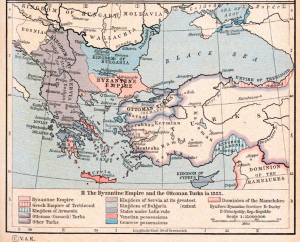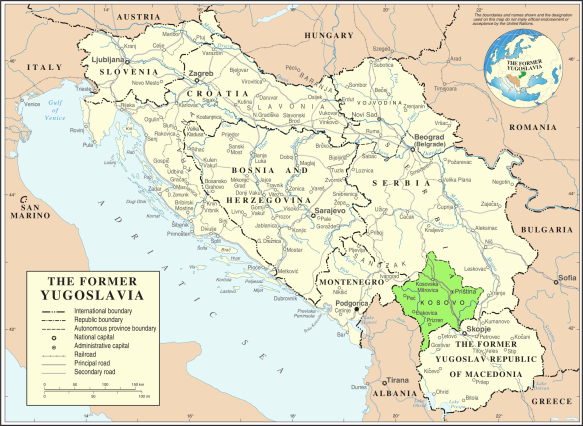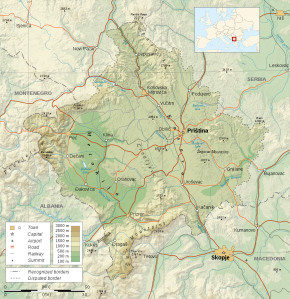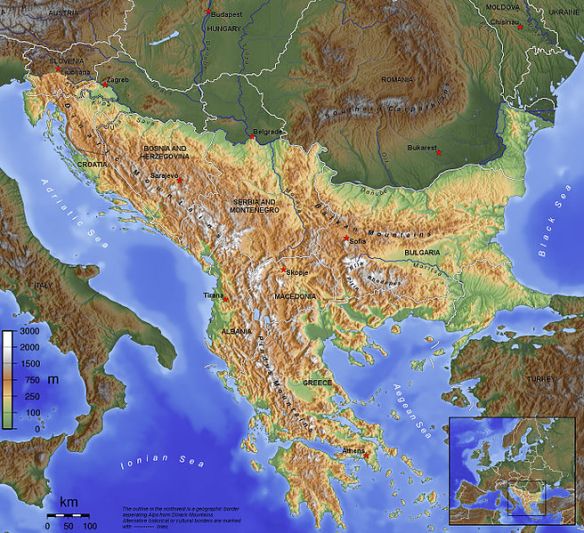February 2, 2012
The bitter cold continues in Pristina, and the snow has returned, though so far just flurries, no new drifts. I did face the elements long enough to get a haircut (which, alas, didn’t take long) and to buy more time for my local cell phone.
The rest of my day took place inside, where I continue to enjoy preparing for my American lit class. As I prepared a background lecture on psychoanalytic theory as a critical preface to Faulkner’s “Barn Burning,” I pondered several parallels between Faulkner’s 1938 tale and the current situation in Kosova. Though independent just four years, Kosova has always been cultural hub, not just in the old Yugoslavia but also in the ancient Balkans, a land where blood feuds have always continued because patriots on all sides, like Faulkner’s Abner Snopes, had and have a “ferocious conviction in the rightness of [their] own actions.” Of course, Snopes lays no claim to patriotism, having ‘served’—as a horse-thief—both the Federals and Confederates in the American Civil War. Still, Snopes feels justified in burning barns of rich white men like Major de Spain because his “wolflike independence” tells him that he has been unfairly labeled ‘trash’ and barred from wealth and power, the ‘phallus’ of American culture.
Unfortunately for pre-adolescent Sarty, his father Abner’s strong character yields only destruction and therefore only fear for the boy, a fear as strong as the smell of cheese that fills the store where Abner, at the beginning of the story, stands trial, again, for burning a barn. A good Jungian, Sarty understands “the old fierce pull of blood” and the myth of fire that informs his clan’s survival; he therefore will lie if he must to defend his father. Sarty will also fight men twice his size who shout “barn burner” at his father as they leave the courtroom store, with Abner free again, owing to lack of evidence, to burn more barns, more symbols of the phallic power he has always lacked.
Yet Sarty, just like many Kosovarans, longs to escape the cycle of violence, longs for his father’s reformation, so that he can love him without fear. Suspecting Sarty’s disloyalty, Snopes beats his son, teaching him that being a man means sticking “to your own blood,” not cow-towing (as Freud might say) to his “superego,” the internalized values of justice that make Sarty hope his father can “change…from what maybe he couldn’t help but be.”
But Snopes, indeed, cannot change, as he proves when he sets out to burn the barn of his new employer, Major de Spain. When Sarty breaks free from his mother’s restraining arms, he knows that he must betray his father to de Spain, that he must betray him to save him. After the betrayal, as he runs away, Sarty hears repeated shots in the distance, knowing then that his intent has back-fired, that he has enabled the killing of “Pap…Pap…Father.”
Such names underscore Sarty’s love for his father, a man who he still believes fought in the cavalry under Colonel Sartoris. Yet he does his mourning on the run and does not “look back,” knowing the direction of freedom and peace.
While it may seem a stretch to make a Balkans allegory out of Faulkner’s post-Civil War story, the parallels seem compelling, at least as I sit here in Kosova, where fidelity to blood has assured its continued spilling. Yet an equally important difference stands out: Sarty did not look back; the Balkans must.





And that is why Literature is literature. 🙂 The universal story of man unites us all. Thanks for a beautiful post.
Indeed! Thanks for your encouragement.
Great post thanks. I really enjoyed it very much.
Love writing? We would love for you to join us.
Writers Wanted
Thanks!